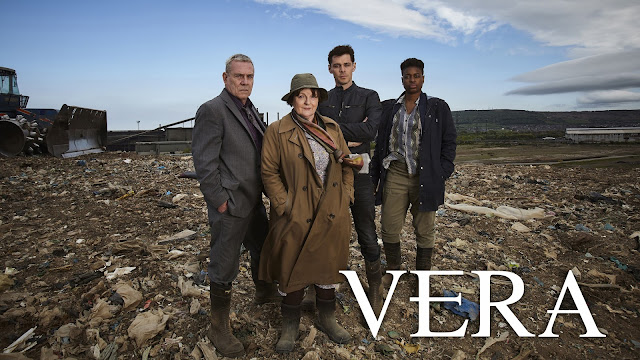Nonfiction - Memoir
1996
Finished on March 28, 2024
Rating: 4/5 (Very Good)
Publisher's Blurb:
Frances Mayes—widely published poet, gourmet cook, and travel writer—opens the door to a wondrous new world when she buys and restores an abandoned villa in the spectacular Tuscan countryside. In sensuous and evocative language, she brings the reader along as she discovers the beauty and simplicity of life in Italy. An accomplished cook and food writer, Mayes also creates dozens of delicious seasonal recipes from her traditional kitchen and simple garden, all of which she includes in the book. Doing for Tuscany what M.F.K. Fisher and Peter Mayle did for Provence, Mayes writes about the tastes and pleasures of a foreign country with gusto and passion. A celebration of the extraordinary quality of life in Tuscany, Under the Tuscan Sun is a feast for all the senses. I've owned a copy of Under the Tuscan Sun for so long, the pages have turned yellow! I finally decided to give it a read and enjoyed it immensely. It's the perfect sort of memoir to pick up and read a few pages (or chapters) here and there. Mayes does a marvelous job depicting her new home and surroundings in Tuscany. While not as humorous as Peter Mayle's A Year in Provence, I savored the prose and descriptions of meals much more so with this book. I saw the film (starring Diane Lane) twenty years or so ago, and as I remember, I enjoyed it, but it's very loosely based on Mayes' memoir. I'm glad I read the book many years later, so as not to compare the two since they're completely different stories.
Some of my favorite passages...
The forno in Cortona bakes a crusty bread in their wood oven, a perfect toast. Breakfast is one of my favorite times because the mornings are so fresh, with no hint of the heat to come. I get up early and take my toast and coffee out on the terrace for an hour with a book and the green-black rows of cypresses against the soft sky, the hills pleated with olive terraces that haven't changed since the seasons were depicted in medieval psalters. Sometimes the valley below is like a bowl filled up with fog. I can see hard green figs on two trees and pears on a tree just below me. A fine crop coming in. I forget my book. Pear cobbler, pear chutney, pear ice, green figs (would the wasps already be in green figs?) with pork, fig fritters, fig and nocciolo tart. May summer last a hundred years.
and
As I unload my cloth sacks, the kitchen fills with the scents of sunny fruits and vegetables warmed in the car. Everyone coming home from market must feel compelled to arrange the tomatoes, eggplants, (melanzane sounds like the real name and even aubergine is better than dreary-sounding eggplant), zucchini, and enormous peppers into a still life in the nearest basket. I resist arranging the fruit in a bowl, except for what we'll eat today, because it's ripe this minute and all we're not about to eat now must go in the fridge.
and
I have considered my table, its ideals as well as its dimensions. If I were a child, I would want to lift up the tablecloth and crawl under the unending table, into the flaxen light where I could crouch and listen to the loud laughs, clinks, and grown-up talk, hear over and over "Salute" and "Cin-cin" travelling around the chairs, stare at kneecaps and walking shoes and flowered skirts hiked up to catch a breeze, the table steady under its weight of food. Such a table should accommodate the wanderings of a large dog. At the end, you need room for an enormous vase of all the flowers in bloom at the moment. The width should allow platters to meander from hand to hand down the center, stopping where they will, and numerous water and wine bottles to accumulate over the hours. You need room for a bowl of cool water to dip the grapes and pears into, a little covered dish to keep the bugs off the Gorgonzola (dolce as opposed to the piccante type, which is for cooking) and caciotta, a local soft cheese. No one cares if olive pits are flung into the distance. The best wardrobe for such a table runs to pale linens, blue checks, pink and green plaid, not dead white, which takes in too much glare. If the table is long enough, everything can be brought out at once, and no one has to run back and forth to the kitchen. Then the table is set for primary pleasure: lingering meals, under the trees at noon. The open air confers an ease, a relaxation and freedom. You're your own guest, which is the way summer ought to be.
and
I was drawn to the surface of Italy for its perched towns, the food, language, and art. I was pulled also to its sense of lived life, the coexistence of times that somehow gives an aura of timelessness--I toast the Etruscan wall above us with my coffee every morning--all the big abstracts that act out in everything from the aggression on the autostrada to the afternoon stroll through the piazza. I cast my lot here for a few short months a year because my curiosity for the layered culture of the country is enexhaustible. But the umbilical that is totally unexpected and elides logic reaches to me through the church.Marvelous armchair travel. Highly recommend!





















